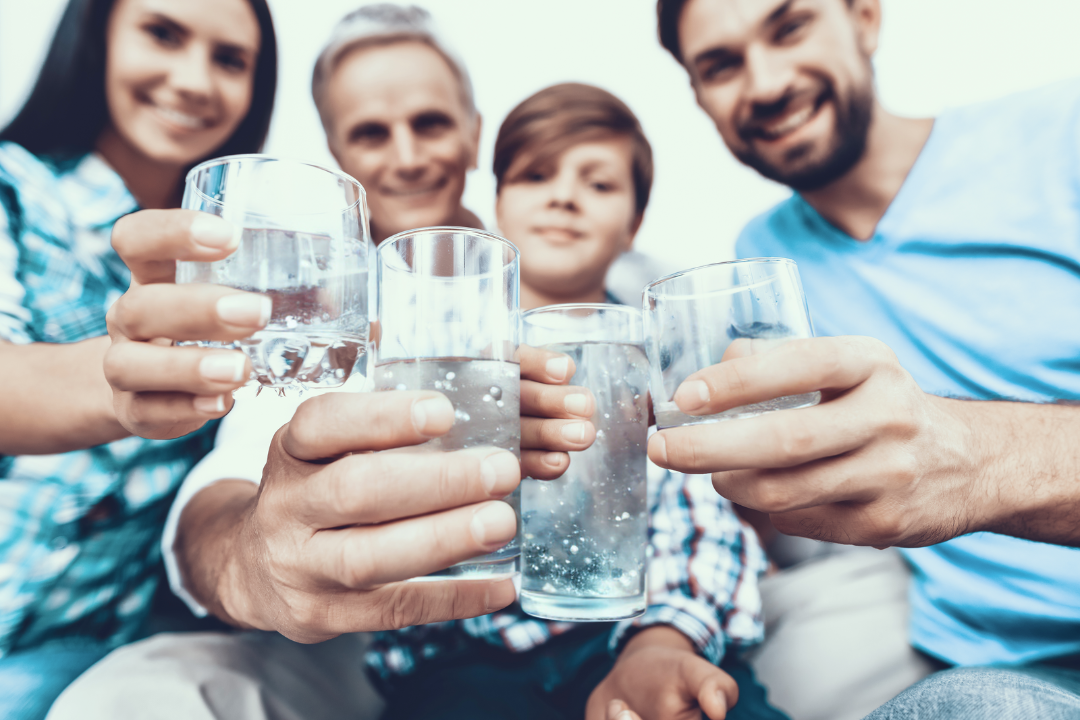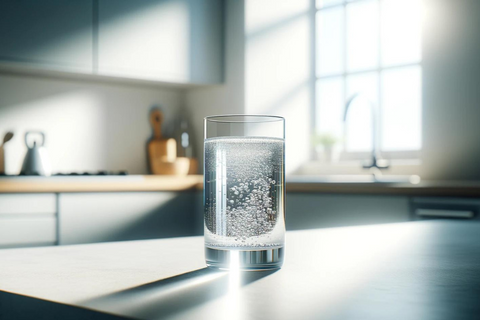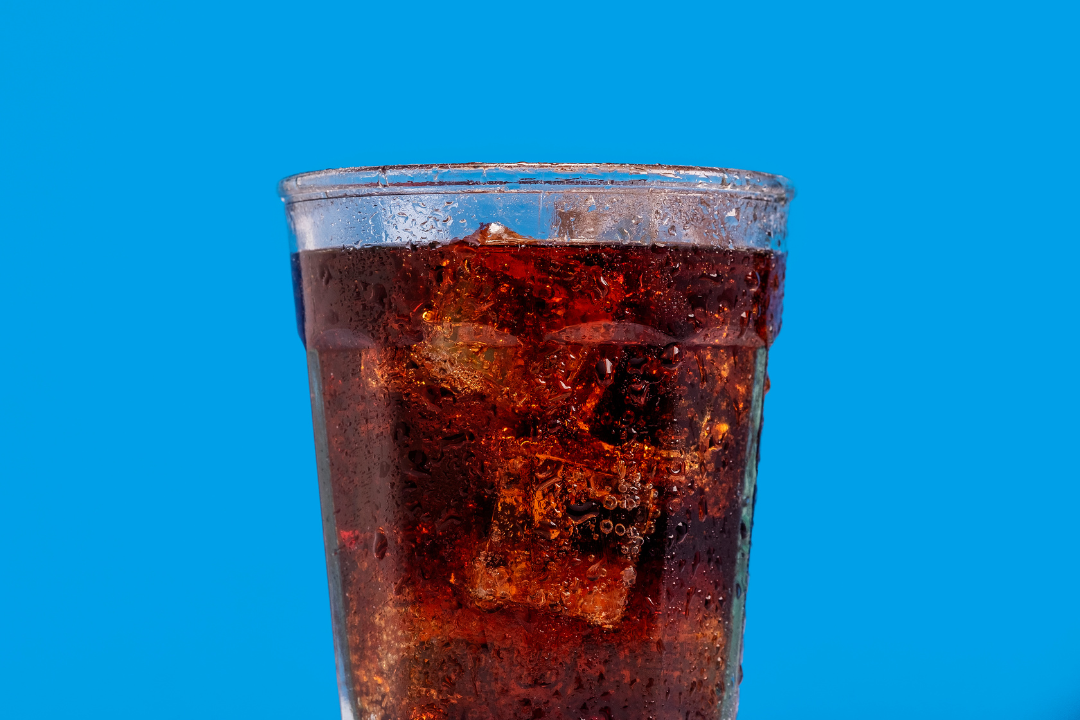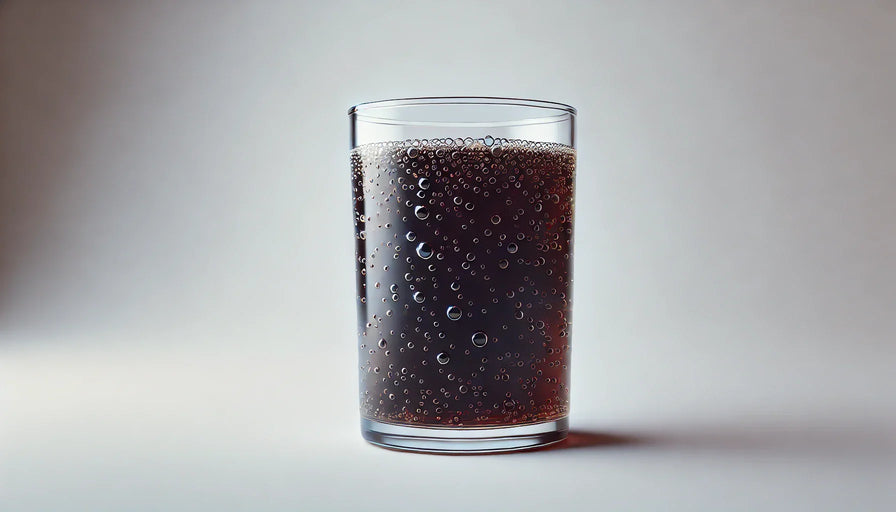
Is Drinking Sparkling Water Bad for Your Teeth?

Is sparkling water bad for your teeth?
Plain sparkling water is safer for tooth enamel than flavored sparkling water or sodas as plain sparkling water has an average pH balance of 4. With an average pH balance of above 4, there is a minimal effect that sparkling water would have on enamel than its counterpart sodas.
Sparkling water often comes under scrutiny regarding its impact on dental health. With its effervescent fizz and refreshing taste, sparkling water is an appealing option for many in staying hydrated.
However, questions and concerns about its acidity and potential to erode tooth enamel have led many to wonder if this bubbly drink is as benign as it appears or if it hides detriments to one's oral health.
From the differences between sparkling water and mineral water to whether sparkling water can aid in digestion, we will help shed light on the common question of whether drinking sparkling water is bad for your teeth so you can make a well-informed decision on making the switch from still water to sparkling water.
Table of contents

Phosphoric levels you should avoid
To protect your dental health, it's advisable to avoid beverages with a pH level below 4.
Beverages with pH levels lower than 4 are more acidic and therefore more likely to contribute to enamel erosion. Consistently consuming drinks with high acidity can lead to dental issues such as sensitivity, cavities, and tooth decay over time.
While occasional consumption may not pose a significant risk, regular exposure to low pH levels can have detrimental effects on your teeth's enamel and your digestive health, especially for those with IBS, underscoring the importance of moderating intake and prioritizing choices that are less acidic.
Related read: What Does Carbonation Do to Your Body?
Common drink pH levels
- Pure Water: pH 7 (neutral)
- Sparkling Water: pH approximately 4 to 5
- Cola: pH approximately 2.5
- Orange Juice: pH approximately 3.5
- Black Coffee: pH approximately 5
- Milk: pH approximately 6.5
- Sports Drink: pH approximately 3 to 4
- Tea: pH varies between 4.9 to 7.2, depending on the type
Related read: What Can Diabetics Drink Besides Water?

Effects of combining CO2 and H2O
When CO2 (carbon dioxide) is combined with H2O (water), it leads to the formation of carbonic acid a weak acid that gives sparkling water its characteristic fizz and tangy taste.
The process, known as carbonation, involves dissolving CO2 in water under pressure, typically using a soda maker.
While this chemical reaction does introduce some acidity to the water, making it slightly more acidic than plain still water, it is generally not enough to cause significant damage to tooth enamel, especially when consumed in moderation.
The presence of carbonic acid is what differentiates sparkling water from still water, providing that refreshing effervescence many people enjoy.
Contrary to popular belief, the phosphoric acid found in carbonated beverages is not harmful to the body's bone health. We have done a full article on this very matter, read more on how carbonation affects the body's bones!
Related read: The Truth About "Forever Chemicals" in Your Seltzer Water
Is the phosphoric acid in carbonated drinks bad?
Yes and no, as there is a relatively large range of carbonated drinks that are available in stores today all with different acidity levels. Not to mention, each carbonated beverage is made up of different compounds and ingredients making each unique on its own pH scale.
Let's go over a few popular carbonated beverages to fully understand the potential dental health impact that these beverages could have.
Carbonated beverages such as:
- Sparkling mineral water
- Soda
- Seltzer water or sparkling water

Sparkling mineral water
When wondering whether sparkling mineral water is bad for your teeth, other researchers were curious of the same thing. A study that took place in 2016 tested a wide variety of beverages from juices to sodas to test their pH levels - many of which tested lower than 3.
During this study, only 2 popular sparkling mineral water brands were tested: Perrier and San Pellegrino. Perrier had a pH of 5.25, and San Pellegrino had a pH level of 4.96.
Knowing the recommended pH level to consume regularly being greater than 4, it's safe to assess that drinking sparkling mineral water is not bad for your teeth and shouldn't have long term damage.
Related Read: What's the Difference Between Mineral Water vs. Sparkling Water?
Soda
The role of acidity is pivotal in discussions concerning dental well-being, especially when comparing beverages like sodas and sparkling water. Sodas typically exhibit a substantially lower pH level, often dipping below 3, rendering them significantly more acidic than the majority of sparkling waters.
This heightened acidity can notably accelerate the erosion of tooth enamel over time, resulting in heightened dental sensitivity and an increased susceptibility to cavities.
The American Dental Association (ADA) has researched and found that regularly drinking beverages with low pH levels, like soft drinks, can harm tooth enamel more than foods high in sugar, and even potentially affect ovarian health. The ADA highlights that it is the acid in these drinks, not just sugar, that primarily leads to enamel erosion.
Related read: Is Soda Water Bad for You?

Seltzer water or sparkling water
Sparkling water or seltzer water is simply carbonated filtered water, and contrary to previous beliefs, it is extremely rare to be allergic to the carbonation in sparkling water alone.
However, the effects of combining CO2 and H2O have left the public to question the long term effects it may have on tooth enamel.
Plain sparkling water has been tested to show between 4 to 5 on the pH level, but any added citric acid can cause this level to significantly go down leaving pause in its safety to consume regularly.
However, solely looking at plain seltzer or sparkling water, we have been able to find some comforting facts and figures. When compared side by side in a study composed by the ADA, sparkling water was found to be just that - water.
This study was composed of taking teeth that were donated for research and exposing them to sparkling water and lab water, testing to see which form of water would attack tooth enamel more aggressively.
Read more: Is Drinking Sparkling Water Good or Bad for You?

While sparkling water does indeed have a level of acidity that could affect dental health with added flavors and citrus, it is significantly less harmful than sodas and other acidic beverages.
Opting for homemade sparkling water over sugary drinks is a healthier choice for both your dental and overall health. Sparkling water can even be a great beverage for aiding weight loss as it is calorie free and sugar free!
Read more on the effects that soda water has on the body!
In conclusion, the results showed that the two kinds of liquid had just about the same effect on the tooth's enamel, even though the sparkling water was slightly more acidic than still water.
Read more: What Are the Health Benefits of Sparkling Water?

Summary
While sparkling water has a slightly higher acidity than plain still water due to carbonation, its impact on dental health is minimal compared to highly acidic beverages like sodas.
Opting for sparkling water can be a healthier, teeth-friendly alternative for those looking to enjoy a fizzy drink without the detrimental effects on dental enamel. So feel free to swap your daily dose of plain water out with sparkling water!
Recommended reading

How to Give Back During Thanksgiving 2025
Key takeaways Thanksgiving is a time to express gratitude and share with those in need. From volunteering at local shelters to donating food and essentials, there are numerous ways to give back to...

What Does Carbonation Do to Your Body?
What does carbonation do to your body? Carbonation alone typically has minimal effects; however, it can cause bloating and discomfort for some, and it may worsen acid reflux due to carbon dioxide ...

What Are the Health Benefits of Sparkling Water?
Summary Sparkling water isn't just a refreshing drink—it comes with surprising health benefits too. From aiding digestion to improving hydration, discover how sparkling water can be a healthy addi...